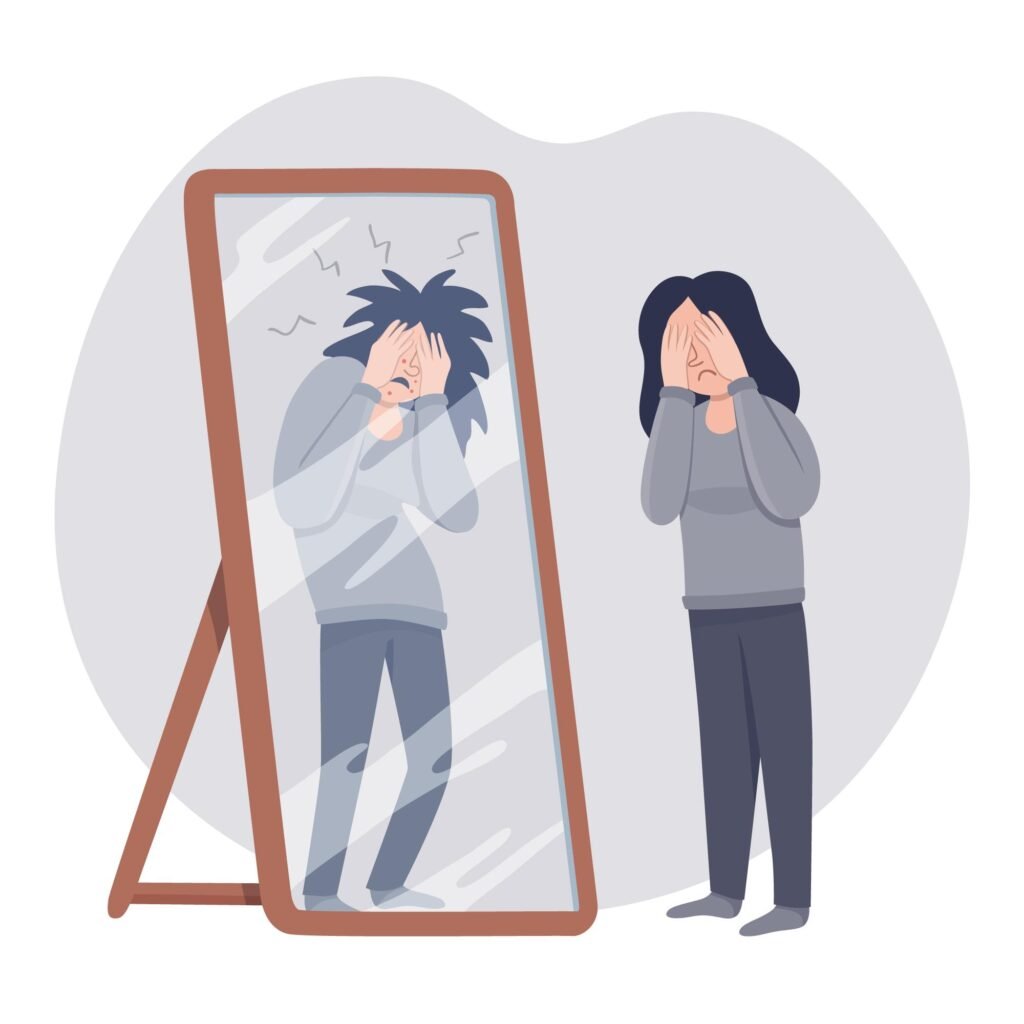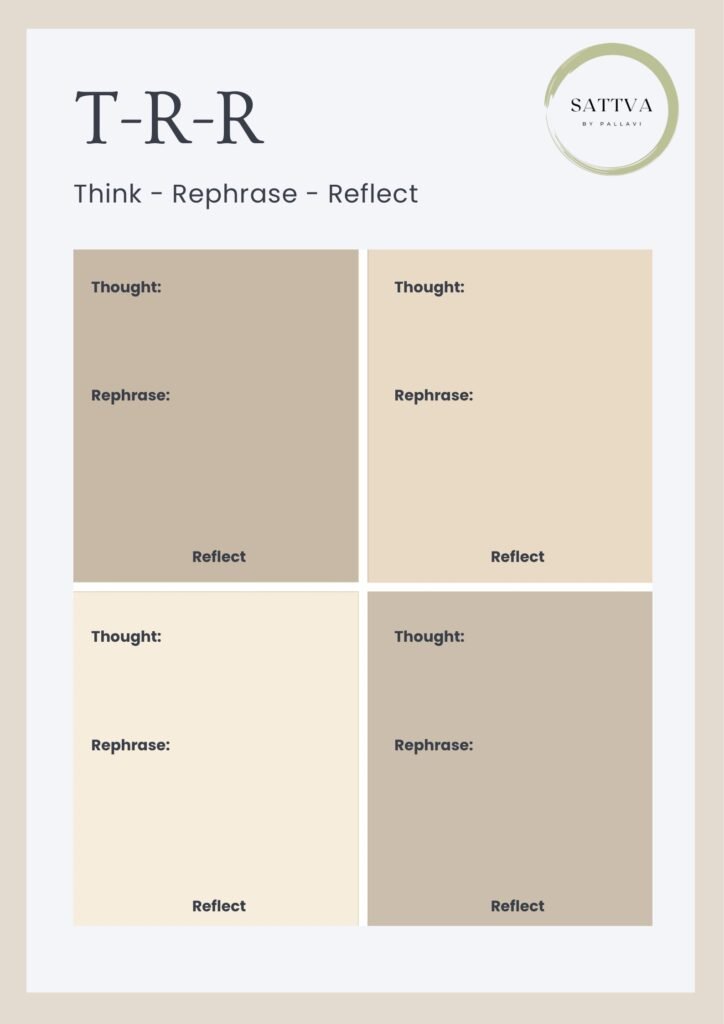When we hear the word toxic, we often think of difficult people, draining relationships, or hostile work environments. But what if the real toxicity isn’t outside of us… but within? What if, sometimes, we’re the ones hurting ourselves the most—without even realising it? This blog is a gentle yet honest invitation to reflect on the …
When we hear the word toxic, we often think of difficult people, draining relationships, or hostile work environments. But what if the real toxicity isn’t outside of us… but within? What if, sometimes, we’re the ones hurting ourselves the most—without even realising it?
This blog is a gentle yet honest invitation to reflect on the ways we might be our own biggest critics, saboteurs, or stressors—and how we can shift from self-toxicity to self-preservation.

Not It’s Not Just Them Thats Toxic – Sometimes, It’s Us Too
It’s easy to spot toxic behavior in others: manipulation, negativity, judgment. But turning the lens inward? That takes courage. Because truth is, we can be toxic to ourselves, too. And unlike external negativity, internal toxicity is harder to notice—because it often wears the mask of “discipline,” “tough love,” or “realism.”
But there’s a difference between being real and being unkind to ourselves. Between holding ourselves accountable and constantly tearing ourselves down.
How Do I Know If I’m Being Toxic to Myself?
If you’re wondering whether you’re sabotaging your own peace, here are 10 common signs of internalized toxicity:
1. Overly Negative Mindset
You constantly imagine the worst-case scenario, focus on what’s going wrong, or dismiss any potential for things to go well. You expect failure even before you begin.
“What if it all goes wrong?” becomes your default thought.
2. Perfectionism
You set impossibly high standards and feel devastated when you don’t meet them. There’s little room for flexibility or self-compassion.
“If it’s not perfect, it’s not worth doing.”
3. Constant Comparison
You regularly measure your worth against others—on social media, at work, in relationships. The result? You feel less-than, no matter your own accomplishments.
“They’re so ahead. I’ll never catch up.”
4. Dismissing Positive Feedback
You struggle to accept compliments or acknowledgment. Deep down, you believe you’re not good enough and that others are just “being nice.”
“They probably don’t mean it.”
5. Rumination Over Past Events
You replay past mistakes like a broken record. Even when a situation is long gone, the shame or regret clings to your present.
“I should’ve done it differently.”
6. Constant Self-Criticism
You judge yourself more harshly than anyone else ever could. You downplay wins, overanalyze flaws, and doubt your capabilities.
“I’ll never be good enough.”
7. Neglecting Self-Care
You push through exhaustion, ignore your needs, skip meals, or overwork. Rest feels like laziness and caring for yourself feels indulgent.
“I don’t have time to take care of myself.”
8. Self-Sabotage
You delay or avoid things that matter. You miss deadlines, abandon goals, or make decisions that keep you stuck—sometimes without knowing why.
“What’s the point of trying if I’ll probably fail?”
9. Fear of Failure
You say no to opportunities, stay in your comfort zone, or reject help—just to avoid the risk of making a mistake.
“If I don’t try, I can’t fail.”
10. Ignoring Your Boundaries
You say yes when you want to say no. You overextend yourself, avoid confrontation, and let your own needs take a backseat.
“If I don’t do it, who will?”
So, What Can I Do About It?
Here’s the thing—being toxic to yourself doesn’t mean you’re broken. It means you’ve learned to survive a certain way. But survival mode isn’t meant to be permanent. You deserve to live in a way that feels supportive, not punishing.
“You are not the storm you weather,
You are the quiet strength that chooses to stay,
to feel, to soften, and to begin again.”
Here are a few steps toward self-preservation
- Become aware – Start noticing your inner voice. Is it kind? Is it patient? Is it rooting for you?
- Name the patterns – Call them what they are. “This is self-doubt.” “This is fear of failure.” Labeling reduces the power of these thoughts.
- Reparent yourself – Ask: “What would I say to a friend feeling this way?” Then offer that same compassion to yourself.
- Set boundaries—with yourself – Say no to toxic thought loops, unrealistic timelines, and expectations that drain you.
- Choose progress over perfection – Show up, even if it’s messy. One step is still forward movement.

Activity:
List 4 ways your inner voice criticises you daily.
Now rewrite each one with compassion, as if you were speaking to a close friend. This small act of self-talk reparenting can create powerful mindset shifts.”
You can download a free worksheet from below.

Final Thoughts: You’re Not the Enemy
You are not your inner critic.
You are not your worst thought.
You are not your lowest moment.
Sometimes, the most radical act of healing is realizing that the harshest voice we hear is our own—and choosing to soften it.
You don’t have to be perfect. You don’t have to have it all figured out. But you do have to start showing up for yourself, not just to survive, but to live—and to live well.
📌 If this blog resonated with you, share it with someone who might need the reminder. And if you’re ready to start healing your relationship with yourself, check out our upcoming sessions at Sattva Wellness
Credits: Therapist Faika







